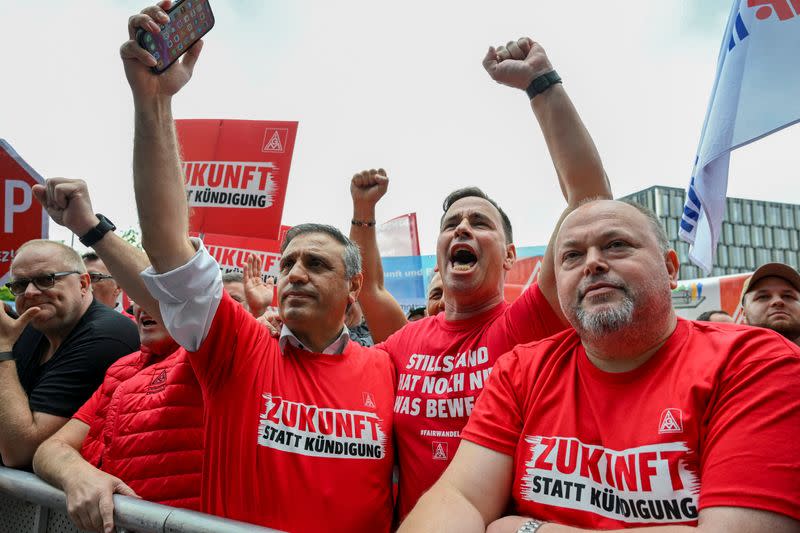German metalworkers' union seeks 7% raise before bargaining round

By Ludwig Burger
FRANKFURT (Reuters) -The leadership of German metalworkers' union IG Metall on Monday advised members to demand a 7% raise in the impending collective bargaining round, well above the current inflation rate.
Germany's largest industrial union said in a statement that regional panels would set the union's official wage demands for a 12-month period on Friday, for talks that are seen as an indicator of wage growth in the euro area.
"Inflation rates may well have gone down, but the level of prices to pay at the checkout is high," said the union, which covers the mechanical engineering and electronics sectors.
It said the bargaining round on behalf of 3.9 million workers, starting mid-September, would need to yield significantly higher pay because companies had a big order backlog.
The sector's employers' association, which includes companies such as Thyssenkrupp, Siemens Healthineers and unlisted Bosch GmbH, rejected the union's demand as excessive.
JP Morgan economist Greg Fuzesi said wage agreements in the sector have historically often come in at about half the level of initial demands.
"The new deal will give a sense of where pay growth settles now that headline inflation has declined back to more normal levels," Fuzesi said in a research note.
The European Central Bank said this month it would closely watch wages after cutting interest rates for the first time since 2019, encouraged by a drop in inflation from 10% in 2022 to just over its 2% target recently.
There is, however, uncertainty about when further rate cuts may follow as ECB policymakers flagged strong price pressures and wage growth, which they said would probably keep inflation above its target well into next year.
German consumer price inflation was 2.8% in May, up from 2.4% in April.
(Additional reporting by Christina Amann; Editing by Friederike Heine, Kevin Liffey and Susan Fenton)

 Yahoo Finance
Yahoo Finance 